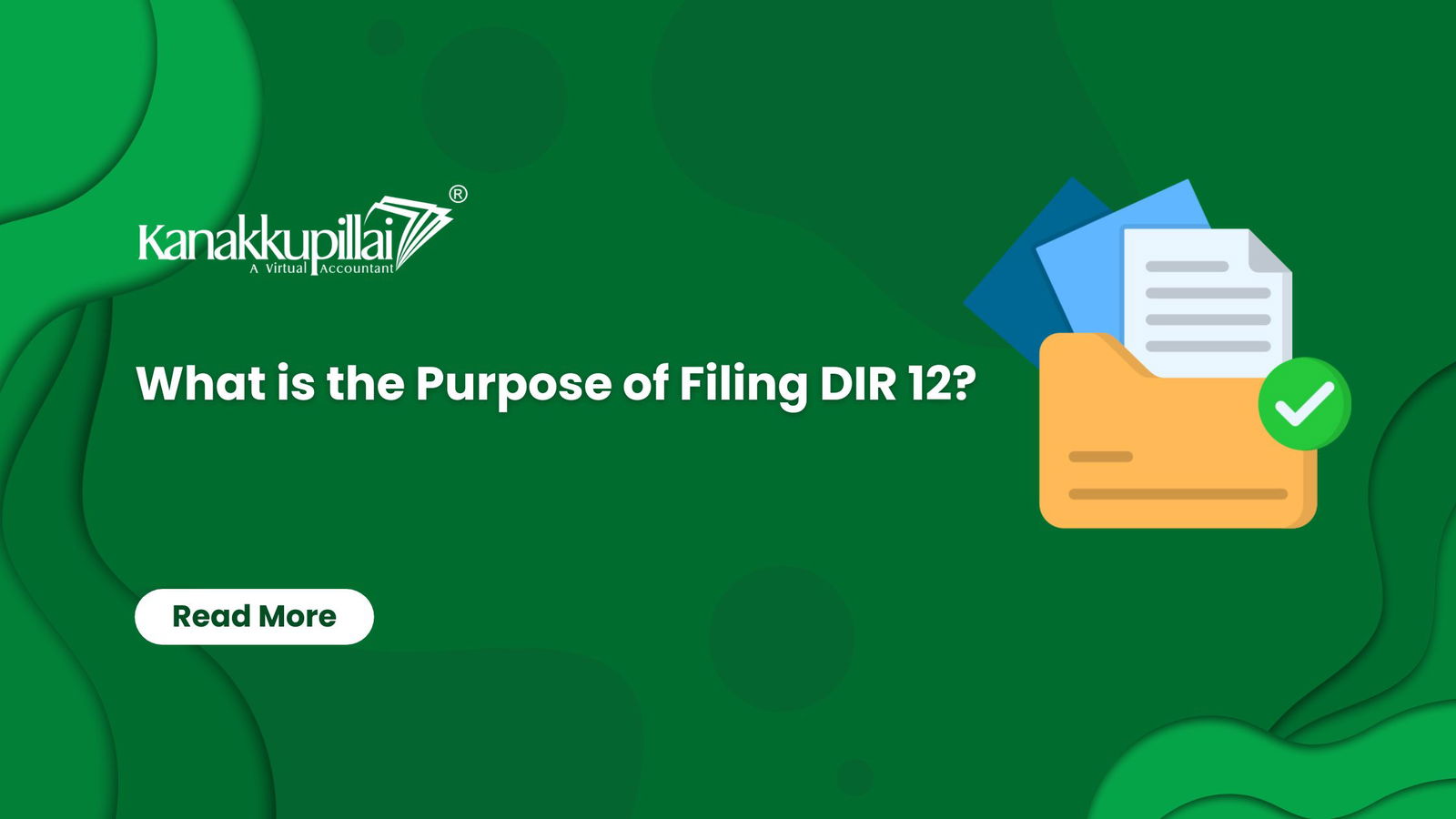Following the law is important for openness and responsibility in company governance. One thing that companies have to do to follow the Companies Act 2013 is send in DIR 12. This blog will talk about DIR 12’s goals when it’s needed, how to file, what happens if you need to follow the rules, and best practices for making sure data is correct.
Understanding DIR 12
Definition and Goals of DIR-12
The DIR 12 form is utilised under the Companies Act 2013 for appointment, resignation, or change in designation of directors of a business. This form serves as official notification of any board of directors changes to the Registrar of Companies (RoC). Filing DIR 12 mostly ensures that the records recorded by the ROC reflect the current status of the leadership of the company and are current.
Essential Sections of the Companies Act 2013 pertinent to DIR 12
The Companies Act 2013’s Section 170 mostly governs DIR 12 since every company has to keep a register of its directors and key management. This section emphasises the significance of maintaining accurate records on the persons in important positions inside the company. Section 173 underlines even more the significance of companies conducting board meetings, thereby underlining the need of a clean board composition.
When is DIR-12 Required?
Filing DIR 12 becomes required in a number of necessary circumstances:
- Appointment of Directors: DIR 12 must be submitted to let the RoC know when a new director is appointed to the board. This covers both regular appointments and those meant to cover informal openings.
- Resignation of Directors: Should a director leave their post, the business must report DIR 12 to inform the RoC of the departure. This guarantees a correct record of the present board composition.
- Changes in Designation: Any changes in the designation of current directors—that is, a director designated as the Managing Director or Whole-Time Director—also call for the Filing of DIR 12. This guarantees well-defined and expressed tasks and responsibilities for directors.
DIR 12 Filing Process
Comprehensive Guide for Filing DIR 12 Step-by-Step
Although filing DIR 12 is easy, it calls for great attention to detail. Here is a systematic guide:
1. Gather Necessary Information:
Before submitting, make sure you have all necessary data, including:
- The director’s name and address.
- DIN, the Director Identification Number.
- Specifics of the resignation or appointment.
- Date of Appointment
2. Access the MCA Portal:
To use the MCA Portal, go to the Ministry of Corporate Affairs website and log into your account. Should you still need an account, you will have to create one.
3. Choose the Correct Form:
You can find the DIR 12 form under the e-Forms section. Make sure you use the appropriate form for the particular event—appointment, resignation, or change in designation.
4. Fill in the Required Details:
Fill out the form with the required information. Accuracy is very important as any differences could cause problems.
5. Attach Supporting Documents:
Depending on the kind of Filing, you may have to provide supporting documentation, including:
- Consent to function as a director.
- Resignation letter (if relevant).
- Board resolution sanctioning the change or appointment.
6. Pay the Filing Fee:
Send the paperwork along with the necessary filing cost. The firm’s paid-up capital might affect the fee structure.
7. Submit the Form:
Once all information is entered and documentation attached, send the form electronically. You should save the acknowledgement receipt you get for your records.
Value of Timely Filing Inside the Thirty days
File DIR 12 thirty days after the occurrence (appointment, resignation, or change in designation). Timeliness of Filing guarantees adherence to the Companies Act and helps prevent fines. Delays in Filing cause extra costs and could call for further investigation of the corporate governance policies.
Consequences of Noncompliance
Effects of Ignoring DIR 12
Ignoring DIR 12’s filing obligations could have significant effects on a business:
- Penalties: Penalties for late Filing are set under the Companies Act, 2013. Businesses might pay more depending on the length of the delay. Severe circumstances might cause sanctions for the corporation and its officials.
- Legal Repercussions: Ignoring filing criteria could result in legal challenges, especially in cases of conflicts regarding the authority of directors. This can discredit the business and cause possible legal action.
- Impact on Corporate Governance: Noncompliance might indicate bad governance policies, which could influence investor trust and compromise the company’s capacity to attract capital.
Practical Considerations
Guidelines for Maintaining Accurate Records
Companies should employ these recommended practices to guarantee adherence to DIR 12 and preserve strong corporate governance:
- Regular Updates: Maintaining a habit of routinely updating information on directors and important managers helps to cover the timely recording of any changes.
- Internal Controls: Install internal controls to guarantee that every appointment, resignation, or change in designation is recorded and reported right away.
- Training and Awareness: Inform pertinent staff members and company secretaries about the need to follow DIR 12 and the consequences of non-compliance.
- Use of Technology: Make use of it to expedite the filing procedure. Many businesses monitor significant deadlines and handle compliance using digital solutions.
- Consultation with Professionals: Consult legal and compliance experts to ensure that all filings are correct and in accordance with the law. This may help reduce the hazards related to non-compliance.
Conclusion
In essence, DIR 12 filing is an essential component of corporate governance that guarantees responsibility and openness within a business. Companies may maintain their dedication to good governance by knowing the goal of DIR 12, when it is needed, using the correct filing method, and realizing the consequences of noncompliance. Using best practices for compliance and record-keeping not only satisfies legal obligations but also builds confidence among interested parties. Maintaining these standards will be crucial for success and sustained development as the corporate scene changes.
Related Service





